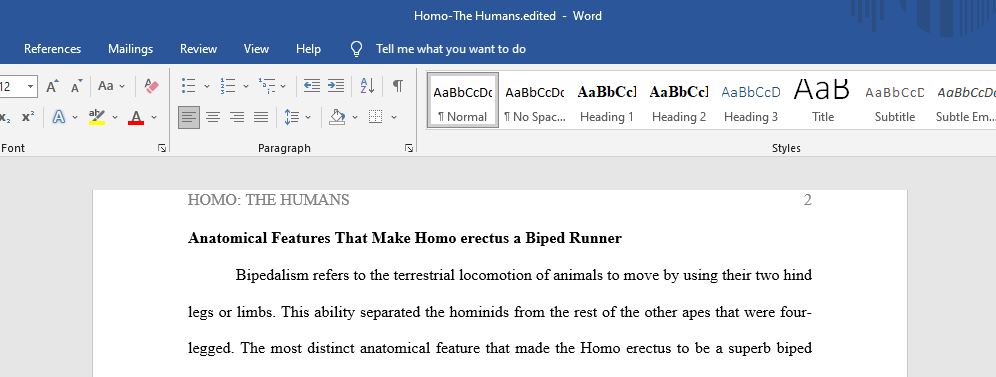Write a discussion about homo: The humans.
Homo: The Humans
During the Pliocene-Pleistocene transition the Homo genus appeared in the fossil record. The Homo genus is a a continuation of the Gracile Australopithecines. Like those that came before, Homo is an obligate biped, but unlike its precursors Homo displays a unique set of physical adaptations along with behaviors that make the genus unique among hominins. To begin with, Homo and all its eventual lineages display hunting behaviors along with the associated stone tools necessary to process meat. At the same time, the creation and dependence on stone tools and other cultural technologies is a function of the increase in brain size that begins with the onset of Homo.
Hunting, the new Homo subsistence pattern, required not just a new kind of mind set to create new cultural technologies but at the same time required a specialized hand that would allow for better manipulation of objects while being capable of resisting the unique physical pressures associated with making tools.
In addition, being able to run after prey became essential. The Homo genus was the first to display adaptations that allow for endurance running. The type of running that Homo becomes known for is not a type of running that allows us to be fast but rather it allows us to run for long distances at a pace which forces prey to undergo hyperthermia over the long run. Your task for this activity will be to compare and contrast the locomotor features of Australopithecus afarensis to Homo erectus. You will accomplish this by answering the following. What anatomical features makes it possible for Homo erectus to be a biped runner.
Pick only one feature discussed in this week’s material that allowed Homo erectus to be a biped runner.
How is your chosen feature different from Australopithecus aferensis equivalent feature? Briefly explain the difference.
Lastly, I would like you to briefly explain in your own words how endurance running would enhance the fitness of the Homo genus.

word limit: 470
